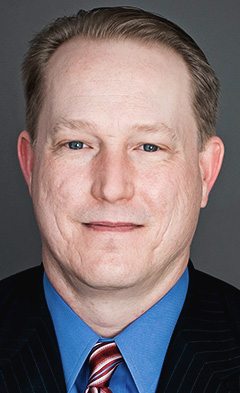

 The time was - way back around the turn of the century - when all Internet companies believed that the Internet should be free from government regulation. I lobbied along with Google and Amazon to that end (there were no Twitter and Facebook then); we were successful over the objection of traditional telcos who wanted the protection of regulation. The FCC under both Democrats and Republicans agreed to forbear from regulating the Internet the way they regulate the telephone network; the Internet flourished, to put it mildly. more
The time was - way back around the turn of the century - when all Internet companies believed that the Internet should be free from government regulation. I lobbied along with Google and Amazon to that end (there were no Twitter and Facebook then); we were successful over the objection of traditional telcos who wanted the protection of regulation. The FCC under both Democrats and Republicans agreed to forbear from regulating the Internet the way they regulate the telephone network; the Internet flourished, to put it mildly. more
 The argument for end-to-end encryption is apparently heating up with the work moving forward on TLSv1.3 currently in progress in the IETF. The naysayers, however, are also out in force, arguing that end-to-end encryption is a net negative... The idea of end-to-end encryption is recast as a form of extremism, a radical idea that should not be supported by the network engineering community. Is end-to-end encryption really extremist? Is it really a threat to the social order? more
The argument for end-to-end encryption is apparently heating up with the work moving forward on TLSv1.3 currently in progress in the IETF. The naysayers, however, are also out in force, arguing that end-to-end encryption is a net negative... The idea of end-to-end encryption is recast as a form of extremism, a radical idea that should not be supported by the network engineering community. Is end-to-end encryption really extremist? Is it really a threat to the social order? more
 In March of this year, the Federal Communications Commission (FCC) adopted an initial Notice of Inquiry (CG No. 17-59) to mitigate robocalls. In July, it adopted a Second Notice. Mitigating spoofed telephone calls is a global problem which every country in the world has been addressing as part of a global ecosystem for many years in intergovernmental and industry bodies, in academic R&D and patent filings, and industry products with ongoing activity continuing today. more
In March of this year, the Federal Communications Commission (FCC) adopted an initial Notice of Inquiry (CG No. 17-59) to mitigate robocalls. In July, it adopted a Second Notice. Mitigating spoofed telephone calls is a global problem which every country in the world has been addressing as part of a global ecosystem for many years in intergovernmental and industry bodies, in academic R&D and patent filings, and industry products with ongoing activity continuing today. more
 No baby boomers had been born when Congress enacted Title II of the Communications Act in 1934 as a means of regulating the Bell telephone monopoly, and the first Millennials were in elementary school when that monopoly was broken up in 1983. Title II was set to die along with plain old telephone service until the Obama administration decided Title II should be used to implement net neutrality -- the principle that consumers should have reasonable access to internet functionality. more
No baby boomers had been born when Congress enacted Title II of the Communications Act in 1934 as a means of regulating the Bell telephone monopoly, and the first Millennials were in elementary school when that monopoly was broken up in 1983. Title II was set to die along with plain old telephone service until the Obama administration decided Title II should be used to implement net neutrality -- the principle that consumers should have reasonable access to internet functionality. more
 In his book "The Darkening Web: The War for Cyberspace" (Penguin Books, New York 2017), Alexander Klimburg, an Austrian-American academic, gives "Internet Dreamers" a "Wake Up Call". He tells us the background-story why people start to be "anxious about the future of the Internet", as the recent ISOC Global Internet Report "Paths to Our Digital Future" has recognized. Klimburg refers to Alphabets CEO Erich Schmidt, who once said that "the Internet is the first thing that humanity has built that humanity does not understand". more
In his book "The Darkening Web: The War for Cyberspace" (Penguin Books, New York 2017), Alexander Klimburg, an Austrian-American academic, gives "Internet Dreamers" a "Wake Up Call". He tells us the background-story why people start to be "anxious about the future of the Internet", as the recent ISOC Global Internet Report "Paths to Our Digital Future" has recognized. Klimburg refers to Alphabets CEO Erich Schmidt, who once said that "the Internet is the first thing that humanity has built that humanity does not understand". more
 I'm an engineer, and I firmly believe that Internet matters and, in general, Information Society, should be kept separate from politics, so usually, I'm very skeptical to talk about those and mix things. Let's start by saying that I'm Catalonian. Despite the dictatorial regime when I was born, forbidden teaching Catalonian, I learned it, even despite, initially for family reasons and now for work reasons, I live in Madrid. However, I keep saying everywhere I go, that I was born in Barcelona... more
I'm an engineer, and I firmly believe that Internet matters and, in general, Information Society, should be kept separate from politics, so usually, I'm very skeptical to talk about those and mix things. Let's start by saying that I'm Catalonian. Despite the dictatorial regime when I was born, forbidden teaching Catalonian, I learned it, even despite, initially for family reasons and now for work reasons, I live in Madrid. However, I keep saying everywhere I go, that I was born in Barcelona... more
 The Equifax hack is understood to have compromised the personal data of over 140 million individuals. Although recent hacks of other businesses have affected more individuals, the personal data held by Equifax is significantly more sensitive than the data compromised in other hacks and includes Social Security numbers, birth dates, current and previous addresses and driver licence details... (Co-authored by Peter Davis and Brendan Nixon.) more
The Equifax hack is understood to have compromised the personal data of over 140 million individuals. Although recent hacks of other businesses have affected more individuals, the personal data held by Equifax is significantly more sensitive than the data compromised in other hacks and includes Social Security numbers, birth dates, current and previous addresses and driver licence details... (Co-authored by Peter Davis and Brendan Nixon.) more
 Suppose for a moment that you are the victim of a wicked ISP that engages in disallowed "throttling" under a "neutral" regime for Internet access. You like to access streaming media from a particular "over the top" service provider. By coincidence, the performance of your favoured application drops at the same time your ISP launches a rival content service of its own. You then complain to the regulator, who investigates... It seems like an open-and-shut case of "throttling" resulting in a disallowed "neutrality violation". Or is it? more
Suppose for a moment that you are the victim of a wicked ISP that engages in disallowed "throttling" under a "neutral" regime for Internet access. You like to access streaming media from a particular "over the top" service provider. By coincidence, the performance of your favoured application drops at the same time your ISP launches a rival content service of its own. You then complain to the regulator, who investigates... It seems like an open-and-shut case of "throttling" resulting in a disallowed "neutrality violation". Or is it? more
 Over the past couple of weeks, following the events in Charlottesville, Virginia, there has been significant discussion in social and traditional media about various technology companies removing websites from their servers, or otherwise making them unavailable. As the operators of Canada's Internet domain, we at CIRA are getting numerous inquiries about our stance and policies on this issue. I'd like to use this opportunity to make a couple of clarifications about how CIRA works and what CIRA actually does. more
Over the past couple of weeks, following the events in Charlottesville, Virginia, there has been significant discussion in social and traditional media about various technology companies removing websites from their servers, or otherwise making them unavailable. As the operators of Canada's Internet domain, we at CIRA are getting numerous inquiries about our stance and policies on this issue. I'd like to use this opportunity to make a couple of clarifications about how CIRA works and what CIRA actually does. more
 Building IoT ventures from scratch by prototyping hardware devices and their backend systems as well as working for a large company that tries to sell IoT devices itself, we learned a lot about the pitfalls and problems concerning security in the IoT. Nearly every connected device out there proved to be vulnerable to attacks. Researchers showed that it's possible to remotely take control over autonomous vehicles, implanted medical devices were manipulated, voting machines compromised and of course all sorts of other "smart" devices... more
Building IoT ventures from scratch by prototyping hardware devices and their backend systems as well as working for a large company that tries to sell IoT devices itself, we learned a lot about the pitfalls and problems concerning security in the IoT. Nearly every connected device out there proved to be vulnerable to attacks. Researchers showed that it's possible to remotely take control over autonomous vehicles, implanted medical devices were manipulated, voting machines compromised and of course all sorts of other "smart" devices... more
 Almost every country code Top-Level Domain (ccTLD) has had some kind of rough and clumsy start at its sunrise. Internet was young, everything was new, and whoever took the national TLD first, got power over it. The situation eventually sorted out, and now most ccTLDs are drama free, well-operated for the benefit of people and the Internet communities in those countries. Unfortunately, not in Slovakia. more
Almost every country code Top-Level Domain (ccTLD) has had some kind of rough and clumsy start at its sunrise. Internet was young, everything was new, and whoever took the national TLD first, got power over it. The situation eventually sorted out, and now most ccTLDs are drama free, well-operated for the benefit of people and the Internet communities in those countries. Unfortunately, not in Slovakia. more
 If a national government wants to prevent certain kinds of Internet communication inside its borders, the costs can be extreme and success will never be more than partial. VPN and tunnel technologies will keep improving as long as there is demand, and filtering or blocking out every such technology will be a never-ending game of one-upmanship. Everyone knows and will always know that determined Internet users will find a way to get to what they want, but sometimes the symbolic message is more important than the operational results. more
If a national government wants to prevent certain kinds of Internet communication inside its borders, the costs can be extreme and success will never be more than partial. VPN and tunnel technologies will keep improving as long as there is demand, and filtering or blocking out every such technology will be a never-ending game of one-upmanship. Everyone knows and will always know that determined Internet users will find a way to get to what they want, but sometimes the symbolic message is more important than the operational results. more
An arbitration panel has given Amazon.com Inc. a new shot at securing the .amazon top-level domain which the company has been fighting for since 2014. more
 The information in WHOIS database is very important to Law Enforcement Agencies, Intellectual Property Owners, and all Internet Users in general, who use this data to locate/contact domain name owners for various purposes including but not limited to enforcing laws or addressing grievances related to cybercrime and other cases of DNS abuse like Spam, Phishing, Malware etc. However, Privacy and Proxy Services are also available for many Top Level Domain Registries... more
The information in WHOIS database is very important to Law Enforcement Agencies, Intellectual Property Owners, and all Internet Users in general, who use this data to locate/contact domain name owners for various purposes including but not limited to enforcing laws or addressing grievances related to cybercrime and other cases of DNS abuse like Spam, Phishing, Malware etc. However, Privacy and Proxy Services are also available for many Top Level Domain Registries... more
 "Net neutrality" is implicitly framed as a debate over how to deliver an equitable ration of quality to each broadband user and application. This is the wrong debate to have, since it is both technically impossible and economically unfair. We should instead be discussing how to create a transparent market for quality that is both achievable and fair. In this paper I propose an alternative approach that (potentially) meets the needs of both consumer advocates and free market proponents. more
"Net neutrality" is implicitly framed as a debate over how to deliver an equitable ration of quality to each broadband user and application. This is the wrong debate to have, since it is both technically impossible and economically unfair. We should instead be discussing how to create a transparent market for quality that is both achievable and fair. In this paper I propose an alternative approach that (potentially) meets the needs of both consumer advocates and free market proponents. more